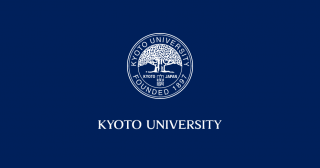Since being named a Designated National University (DNU) on 30 June 2017, Kyoto University has been preparing to implement a number of initiatives with government support provided under this program. Many of these efforts are focused on the humanities and social sciences, and include presenting a new vision for the future, and pioneering new fields of inquiry through integration with the natural sciences.
On 30 March, President Juichi Yamagiwa issued the following statement regarding the University's commitment to leading Japan's humanities and social science scholarship.
"Creating a new world of scholarship through a renewed focus on the humanities and social sciences"
Our civilization is now at a major crossroads. After leading a hunter-gatherer existence for millions of years, about 12,000 years ago, humans began to produce food through farming and livestock breeding. This marked the beginning of a settled existence and rapid population growth, which in turn gave rise to large-scale and multilayered social structures. Then in the late 18th century, the Industrial Revolution transformed the entire structure of industry and economy, causing the population to concentrate in cities. Next, the information revolution of the mid-20th century brought phenomenal advances in methods of communication and transportation. These advancements have ushered in a globalized world, characterized by constant cross-border movement of people and goods.
Now in the 21st century, genetic engineering and genome editing have made it possible to modify organisms, including humans, and big data analysis and artificial intelligence are paving the way for an "ultra-smart society". One consequence of these developments in technology is the ongoing need to rethink the concepts of humanism and civil society, which are based on individualism.
At the same time, as indicated by the proposed designation of the current epoch as the "Anthropocene" — a term signifying the impact of human activities on the world — this century has seen excessive industrialization and the use of nuclear and other new energy sources triggering immense changes in terrestrial and marine ecosystems, possibly endangering the entire planet. The global environment, in fact, has already sustained extensive and irreparable damage in the form of biodiversity loss resulting from massive deforestation, pollution by toxic chemicals, and river and lake depletion caused by over-development.
Meanwhile, the Paris Agreement, adopted in 2015, stipulates that the global temperature rise since the Industrial Revolution must be kept within two degrees Celsius. If we are to achieve this goal and create a bright future for all, we must begin to think seriously about how to limit human activities.
Human society and politics are now intertwined with the world of nature in complex ways. In light of this, we must begin to engage in scholarship with a more holistic perspective, one that encompasses nature and culture, and that transcends disciplinary boundaries. We must also shift the focus of technological development away from pursuing human survival and prosperity, to creating an ecosystem where all life forms, including humans, can live together in harmony. There is currently great interest in what kinds of industries may incorporate such new thoughts and technologies to shape the future of our planet. Universities will surely be at the center of such collaborations.
Kyoto University, as an intellectual assemblage of diverse knowledge, has continued to create new frontiers of scholarship. Kitarō Nishida and Hajime Tanabe, known as philosophers of the Kyoto School, for example, sought to grasp the nature of life by expanding their focus of inquiry beyond humanity, while generations of primatologists, led by Kinji Imanishi, have investigated inter-species connections and harmony based on the recognition that society is not limited to the world of humans. More recently, the Faculty of Integrated Human Studies and the Graduate School of Human and Environmental Studies, both celebrating their 25th anniversaries this year, have pioneered unique interdisciplinary approaches to the study of humanity and the environment.
In various other parts of the University, researchers in the humanities and social sciences are actively working with their natural science counterparts, and expanding their international networks of collaboration. Among the departments noted for such undertakings are the long-established Institute for Research in Humanities and Center for Southeast Asian Studies (CSEAS), as well as the Graduate School of Asian and African Area Studies (ASAFAS), the Graduate School of Global Environmental Studies (GSGES), and Kokoro Research Center.
As a Designated National University — granted last year by MEXT (Ministry of Education, Culture, Sports, Science and Technology) — Kyoto University is tasked with leading the country's humanities and social science research and education into the future. We aim to fulfill this role by building on the diverse knowledge we have accumulated over the years, expanding the scope of our humanities and social science inquiry, collaborating with other national as well as public and private universities, and as a "window" to society and the world, inviting all to join us in the creation of new knowledge.
Related link
- Kyoto U named Designated National University (30 June 2017)
https://www.kyoto-u.ac.jp/en/about/events_news/office/kikaku-joho/kikaku/news/2017/170630_1.html





